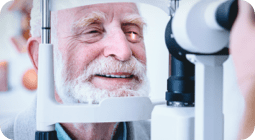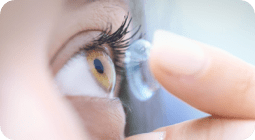Diabetes Can Affect Your Eye Health
Diabetes occurs when your body cannot or does not use insulin, which is necessary for breaking down blood glucose (sugar) to create energy. Without insulin, glucose can start to build up in your blood vessels, causing serious health problems, including in your eyes.
Protect your eyes with eye exams specially tailored to those with diabetes at Doctors EyeCare Grande Prairie. Please book your appointment today.

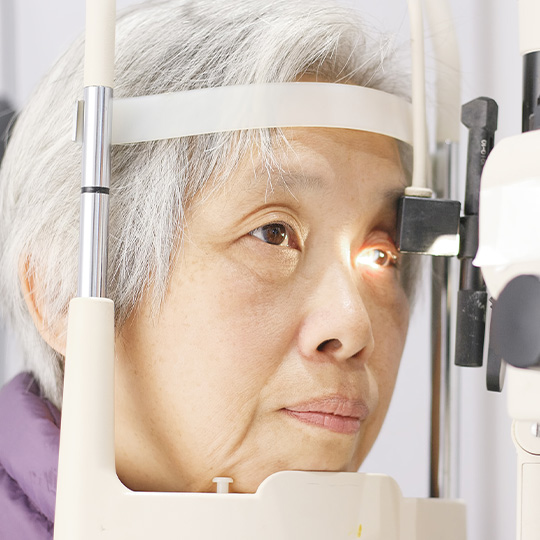
Diabetes & Your Eyes
Your eyes are supported by many blood vessels in the back of the eye, and these are sensitive to damage caused by high blood sugar. When blood glucose levels are high over long periods, these blood vessels can become damaged and begin to swell , break, and leak fluid. Most diabetes-related eye diseases begin with issues with the blood vessels.
Temporary high blood sugar levels can cause blurred vision. This will resolve on its own once your blood glucose levels have returned to normal. Besides temporary effects to your eyes, diabetes increases the risk of developing several eye diseases such as cataracts, glaucoma, diabetic retinopathy, and macular edema.
Diabetic Retinopathy
Diabetic retinopathy can affect people with type 1 or type 2 diabetes. Symptoms may not appear until the condition has become severe. Diabetic retinopathy can lead to severe vision loss.
In the earlier stages of this condition, tiny bulges (microaneurysms) protrude from the walls of the blood vessels. These bulges can break and leak fluid and blood into the retina, causing nonproliferative diabetic retinopathy.
When the disease progresses, it becomes proliferative diabetic retinopathy. Blocked blood vessels cut off oxygen flow to the retina, prompting abnormal blood vessels to develop to compensate. These new blood vessels often come with serious side effects.
Diabetic Macular Edema
Diabetic macular edema is a complication of diabetic retinopathy and is one of the most common causes of vision loss in those with diabetic retinopathy. Fluid leaking caused by retinopathy can cause swelling in the centre of the retina (macula), eventually leading to vision loss.
How Do We Diagnose Diabetic Eye Disease?
Following our practice’s vision, we have invested in technology to catch diabetic eye diseases in their earliest stages.
Fundus Photography
Fundus photography is a non-invasive procedure used to record images of the interior surface of the eye. During this procedure, we dilate your eyes to increase the area of your eye we can see. The low-power microscope allows us to examine your optic disc, retina, retinal blood vessels, macula, and lens.
Optical Coherence Tomography
Optical coherence tomography (OCT) takes detailed cross-section images of the retinal layers in your eye. It’s similar to an ultrasound, but it uses light instead of sound. OCT is a non-invasive technology.
The images taken by OCT are highly detailed and can identify the early stages of diabetic eye disease.
Diabetic Eye Disease Prevention
Proper management of your diabetes can help prevent the severe vision loss associated with diabetes. Annual eye examinations can help avoid potential complications and catch any initial stages of diabetic eye disease.
If you or a family member has diabetes or a family history of diabetes, please contact us to book an eye examination.
Our Location
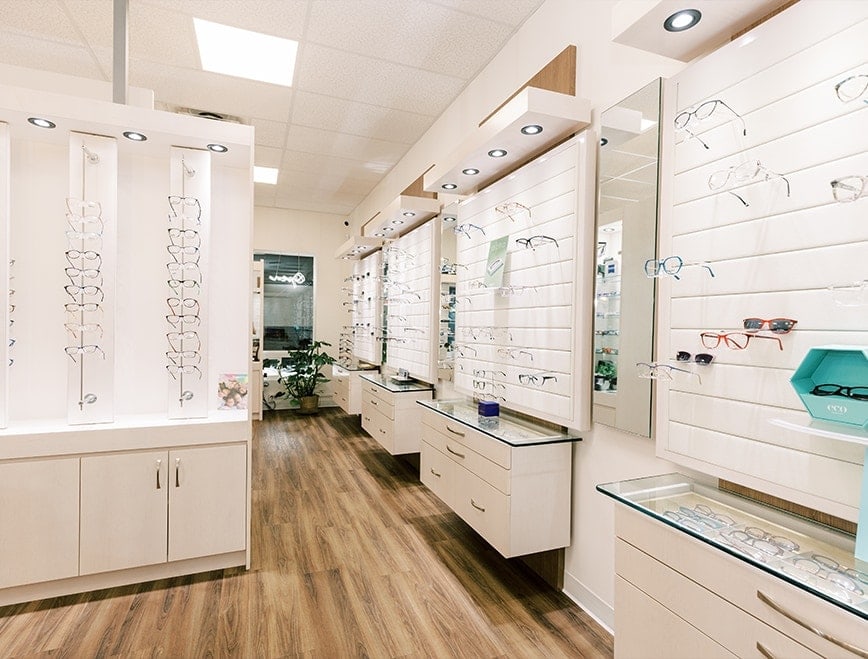
Our Address
- 11709 102 Street, Unit 107
- Grande Prairie, AB T8V 7S6
Contact Us
- Phone: (780) 830-5330
- Email: [email protected]
Clinic Hours
- Monday (Alternating): 9:00 AM – 3:00 PM
- Tuesday: 11:00 AM – 7:30 PM
- Wednesday: 10:00 AM – 5:00 PM
- Thursday: 9:00 AM – 5:00 PM
- Friday: 9:00 AM – 5:00 PM
- Saturday: Closed
- Sunday: Closed

Our Brands
Most of the frames we offer are European-made, giving you a unique and stylish alternative to typical U.S.-based options.









Our Google Reviews


Our Blog
Causes of High Eye Pressure & How to Reduce It
Eye ConditionsEye HealthHigh eye pressure, or ocular hypertension, develops when the fluid inside your eye doesn’t drain properly, causing pressure to build up. […]
How to Get Rid of Red Eyes Without Eye Drops
Eye CareEye ConditionsRed eyes may look alarming and can coincide with irritating symptoms. Learn how to get rid of red eyes without eye drops with Dr. Shonah Finlay Doctors Eye Care […]
What Do Dry Eyes Feel Like?
Dry EyeDry Eye TherapyDry eye happens when your eyes don’t produce enough quality tears to stay properly lubricated. Common symptoms include a scratchy or gritty feeling, stinging or burning sensations, as well as redness and irritation. […]
Causes of High Eye Pressure & How to Reduce It

High eye pressure, or ocular hypertension, develops when the fluid inside your eye doesn’t drain properly, causing pressure to build up. […]
How to Get Rid of Red Eyes Without Eye Drops
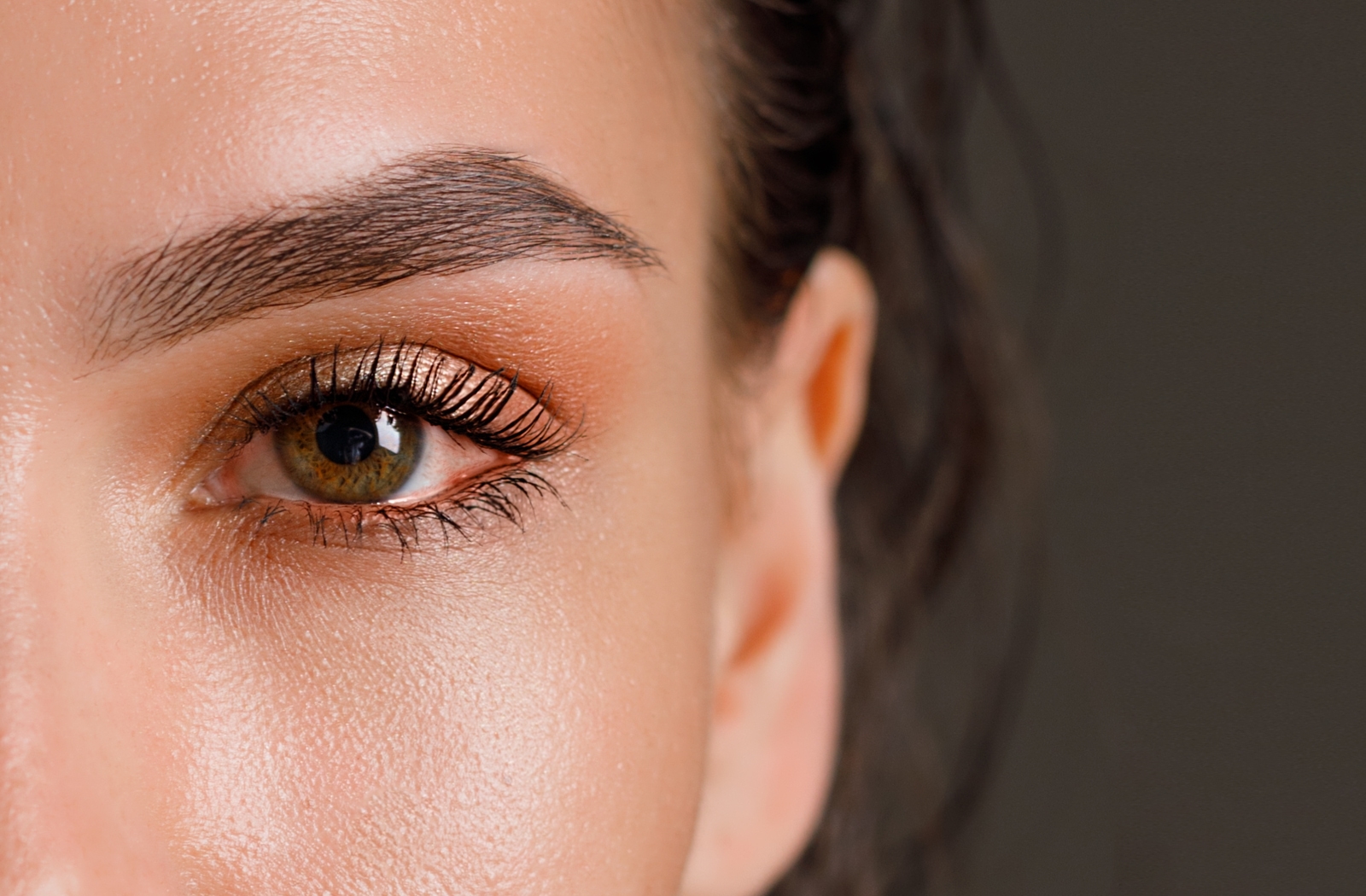
Red eyes may look alarming and can coincide with irritating symptoms. Learn how to get rid of red eyes without eye drops with Dr. Shonah Finlay Doctors Eye Care […]
What Do Dry Eyes Feel Like?

Dry eye happens when your eyes don’t produce enough quality tears to stay properly lubricated. Common symptoms include a scratchy or gritty feeling, stinging or burning sensations, as well as redness and irritation. […]


